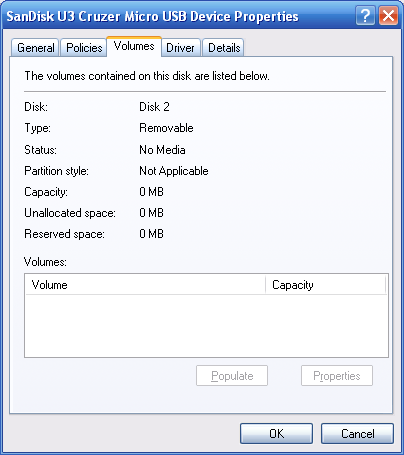
Flash Usb Repair V2 9 1 1 Zip Code
SanDisk CZ60 32GB USB Flash Drive, Black/Red $ 6. 00 As low as $ 12. SanDisk iXpand 16GB V2 Flash Drive $ 15. 00 As low as. DriverFilesDownload.com is a professional Driver Files Download Site, you can download Repair_v2.9.1.8A.zip driver files free here, fit for / Windows ME / Windows 2K / Windows XP / Windows Vista, size:143 KB, Repair_v2.9.1.8A.zip driver files is 100% clean and safe, Just Download Repair_v2.9.1.8A.zip Driver Files with 100% confidence Now!
Source code aplikasi penjualan barang kasira. MeTu+ atau dalam format yang panjang adalah “MediaTutorial Plus” merupakan sebuah project percobaan dari MediaTutorial. Project ini diberi akhiran tanda “+” dengan harapan nantinya dapat memberikan nilai plus untuk MediaTutorial karena kita lihat situs web tutorial ini belum sempurna kalo hanya sharing tutorial tanpa sebuah project.
Everyone has a flash drive. They’re great little things, and they make safeguarding data easy. However, sometimes flash drives can get corrupted or just flat out quit working. If you’re a Linux user and this has happened to you, there’s an easy fix to all of this. In this article we’ll go over a few really simple tricks on how you can get your flash drive back in working order. Note: the tricks outlined in this article aren’t necessarily exclusive to USB drives and can be used on hard drives too.
Removing bad blocks from the USB drive with fsck An easy way to repair a flash drive, or any drive really, is to use the fsck tool. This tool is great for removing bad file blocks, as most (if not all) corruption and unreadability comes from problems like this. To remove the corrupted file blocks from the USB flash drive, open a terminal window and enter the following commands. Users must figure out what the drive designation is on the system before things can move forward. Download mp3 awake my soul chris tomlin. Do this by entering the lsblk command. This will list all of the attached disks on your system.
Sudo fsck /dev /sdc1 Note: this tutorial assumes that the flash drive is /dev/sdc (or /dev/sdc1). Users may have different labels for their flash drive on their system. Zeroing the USB drive Sometimes a USB drive can be totally unreadable to the point where it is no longer worth saving. When this happens the best route is often to just zero out the data and start over. The best tool for the job in this situation is dd, and it works quite well. Start by taking the drive label that was found earlier with the lsblk command, and apply the same logic (remember that /dev/sdc1 is a partition, and /dev/sdc is an entire device).
I have a 16GB USB drive that someone tried to convert into a Debian Live booting USB. This drive will NOT erase!and will NOT reformat! I have followed every tutorial online I could findfrom using “dd” and trying to zero it out to using fsck and the mkfs commands. NOTHING works! The iso is still on this drive (as a file!) and it will NOT format! I’ve tried using GNome’s Disk Utility but the “Format” option is not even available. Its all just greyed out.
Mind you I’m not living in a state of poverty, and buying another 16.328GB USB is not an impossibility, but its just frustrating to not get things accomplished using Linux, which I go around telling everyone is the greatest thing since sliced bread! Seems that eveytime I try to run something on this USB it claims the entire drive is a “read-only” file. (WTH!?how is that even possible from someone using UnetBootin to try and create a bootable Debian Live USB stick!? And why wouldn’t these commands.which were run under ROOT privileges WORK!?) Just frustrating.but its okI should have about 2 more USBs by the time this day is over! Thanks for your post. I’m wondering if you can help me with an USB stick which just won’t get mounted. I’ve tried different ports, different PCs and I doesn’t work anymore.
This is what I get when running dmesg: [ 1231.145133] usb 3-1: new full-speed USB device number 2 using xhci_hcd [ 1231.257177] usb 3-1: device descriptor read/64, error -71 [ 1231.473071] usb 3-1: device descriptor read/64, error -71 [ 1231.689087] usb 3-1: new full-speed USB device number 3 using xhci_hcd [ 1231.801043] usb 3-1: device descriptor read/64, error -71 [ 1232.017047] usb 3-1: device descriptor read/64, error -71 [ 1232.233038] usb 3-1: new full-speed USB device number 4 using xhci_hcd [ 1232.233348] usb 3-1: Device not responding to setup address. [ 1232.437283] usb 3-1: Device not responding to setup address. [ 1232.640994] usb 3-1: device not accepting address 4, error -71 [ 1232.752982] usb 3-1: new full-speed USB device number 5 using xhci_hcd [ 1232.753272] usb 3-1: Device not responding to setup address. [ 1232.957260] usb 3-1: Device not responding to setup address. [ 1233.160908] usb 3-1: device not accepting address 5, error -71 [ 1233.160961] usb usb3-port1: unable to enumerate USB device •.